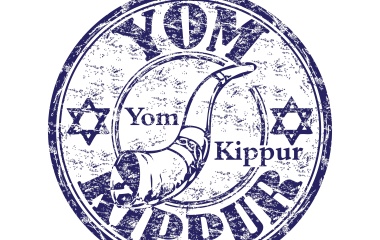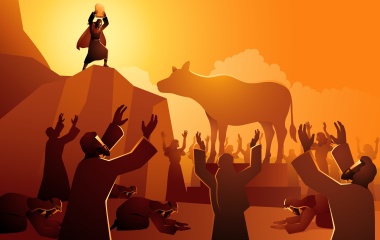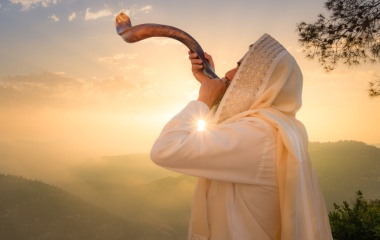
“In a place where ba’alei teshuva stand there, not even the fully righteous can stand” (Brachot 34b). This teaching is generally understood to mean that penitents are on a higher level than the fully righteous. The underlying premise of this teaching is that sinning is enjoyable—if it were not so, then why sin?—and it is much harder to give up something that one has already enjoyed than to refrain from starting in the first place. I imagine I would enjoy lobster, but having never tasted it, I do not miss it. However, had I grown up eating lobster—and I hear it tastes quite good—and was subsequently “forced” to give it up, that would be difficult. “According to the effort is the reward”, and having enjoyed sin, it takes much greater effort to do teshuva and repent from that sin.
Moreover, as psychologists teach, and as we know from personal experience, the drive to do evil is greater than the desire to do good. While we may mean well, all too often we get sidetracked and end up not accomplishing what we had set out to do. Somehow, this rarely happens when our plans are more nefarious. Very little will stop one determined to sin. Were we able to take that extra energy we invest in sinning and transfer it to our performance of mitzvot, the sin would actually be a catalyst to greater mitzvah performance. It is this phenomenon that helps explain why frequently, people who did not grow up observant[1] but become so later on in life, are often more meticulous in their observance of mitzvot.
However, there is another angle to this teaching, one that bears emphasis as racial tensions rise in much of the world. “He [Rabbi Akiva] used to say: Beloved is man, for he was created in the image [of G-d]. Especially beloved is he, for it was made known to him that he had been created in the image [of G-d]” (Pirkei Avot 3-14).
In his fascinating and wide-ranging comments on this Mishna, the Tiferet Yisrael, Rav Yisrael Lifschitz, compares and contrasts the gifts G-d has given to non-Jews and those given to the Jewish people—all of whom are beloved by G-d and of whom are created in His image. The Jewish people were given the gift of Torah, serving as an instruction guide to living a life of high ethics and integrity. The Jewish people have the opportunity to develop a special relationship with G-d, who entered into a covenantal relationship with the His chosen nation. This is something granted uniquely to the Jewish people, “not that we should glorify ourselves in this”, but as a calling, responsibility and even, at times, a great burden.
However, he writes, the nations of the world have a major advantage over the Jewish people. “They, with their free will and mamash, with their own personal strength, they make themselves [refined people], and this is definitely a greater level than the Jewish people, who were pulled by the corners of their heads by the power of G-d to complete them. And the [Jewish people] should not think favourably of themselves for that which G-d did wonders for them and to educate them, it was the hand of G-d in all of this and only due to the merit of their ancestors”.
The Torah is a wonderful gift granted the Jewish people, but even more wonderful are those who discover Torah on their own, a privilege and opportunity granted to the non-Jewish world.
Those who are the beneficiaries of a received tradition, growing up in observant homes (as blessed as that is), cannot reach the heights achieved by those who—through their own efforts and searching—embrace a life of Torah. For the Jew, that means embracing the 613 mitzvot, whereas the non-Jew must follow the seven basic Noachide laws to merit the status of “the pious of the nations”.
Perhaps today, even those who grew up in observant homes can have the benefits of being a ba’al teshuva. Modernity allows man to choose the path to be taken, more so than any time previously. No longer—at least, in the western world—is anyone “forced” to be “religious”, and no longer are governments extensions of a religious order. All are free to abandon the traditions in which they were raised and forge their own paths in life. And with the advent of modernity - enlightenment and emancipation- the vast majority of Jews, given the choice, did exactly that[2]. Those who remain observant do so of their own volition and thus, can be said to have the great benefit of discovering G-d on their own. But such requirers that we do the mitzvot out of conviction, not out of habit or inertia. And that is easier said than done.
“According to the effort is the reward”. May we all, Jew and non-Jew alike, merit to stand in the presence of G-d and to feel His presence, so that “lifnei Hashem titharu, we may purify ourselves before G-d”.
[1] It is important to note that the Talmudic and medieval references to ba’alei teshuva refer to one who was basically observant, but sinned in various areas and would like to repent. The modern-day reference to those who grew up in non-observant homes and later commit themselves to a life following the halacha is a result of the emancipation and modernity. In pre-modern times, it just was not possible to identify as part of the Jewish community yet violate Shabbat in public, flaunt the laws of kashrut and not know what Tzom Gedaliah is. There was no place in the Jewish community for such a person in a world where religion dominated almost every aspect of life. Thankfully, today one who observes next to nothing can still be a contributing member of the Jewish community.
[2] Such says much about the depths of their observance and the failure of the religious leaders to model a religious worldview that would be relevant to the masses of world Jewry, an issue we ignore at our peril.



